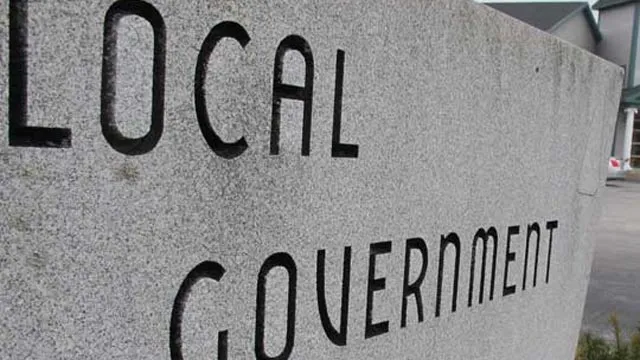CSOs, NLC, NULGE, NUT, ALGON team up for Local Government autonomy
Civil Society Organisations (CSOs) and the Organized Labour have reiterated their demand for autonomous, functional and effective local government administration in the country. The Nigerian Labour Congress (NLC), Nigeria Union of Local Government Employees (NULGE), Association of Local Governments of Nigeria (ALGON) and Nigeria Union of Teachers (NUT), unanimously expressed commitment to sustain the agitation […]

Civil Society Organisations (CSOs) and the Organized Labour have reiterated their demand for autonomous, functional and effective local government administration in the country.
The Nigerian Labour Congress (NLC), Nigeria Union of Local Government Employees (NULGE), Association of Local Governments of Nigeria (ALGON) and Nigeria Union of Teachers (NUT), unanimously expressed commitment to sustain the agitation for local government autonomy.
CSO leaders and Labour Movement met in Abuja at a one-day reflection and planning session on local government reforms organised by the Partnership to Engage, Reform and Learn (PERL), a UK, Foreign, Commonwealth and Development Office (FCDO) programme.
During the session, stakeholders engaged in robust discussions, analysed key issues and strategized to leverage on the ongoing 10th National Assembly Constitution amendment process to achieve Local Government autonomy.
- CAC extends deadline for PoS registration by 60 days
- What FG needs to do to compel governors on LG autonomy – Musa Elayo
The Team Leader of the Partnership to Engage, Reform and Learn (PERL), Engage Citizens, Dr John Mutu, charged the stakeholders to intensify efforts to actualise the objective.
President of Nigeria Labour Congress (NLC), Comrade Joe Ajaero, said citizens at grassroots and local government staff would benefit from local government administration when the autonomy is granted.
NULGE President, Comrade Ambali Akeem, said nonexistence of local government administration contributed to insecurity in the country and that such challenges would be addressed and overcome when local governments are functioning effectively.
ALGON Director-General, Sir Itiako Ikpokpo, and National President of NUT, Comrade Audi Titus Amba, represented by NUT Director of Legal Services, Planing, Research and Statistics, Barrister Okoroafor Okechukwu reaffirmed their resolve to work with NULGE and all stakeholders to ensure actualisation of local government autonomy..
Senator Abdullahi Bala Adamu of Democracy Vanguard noted that local government as the third tier of government is very crucial to achieving good governance. Also, community and media personalities at the event pledged their support for the campaign for local government autonomy in Nigeria.
The President of Lawyers Alert, a leading Civi Nonprofit Human Rights Organisations in Nigeria, Barrister Rommy Mom, in his presentation titled: “Strengthening the Local Government System in the 4th Republic of Nigeria, The Journey So Far”, said an autonomous, functional effective and efficient local government administration would ensure delivery of services to the people.
Mom gave overview of the role of local government in democratic system highlighted the past efforts by stakeholders to achieve local government autonomy.
He frowned that lack of administrative and financial autonomy leads to mis-governance.
His words, “Local Government Areas (LGAs) hold a significant position due to their proximity to the grassroots population. Unfortunately, Local Governments have not effectively fulfilled their service delivery roles. In 2022, N2.2 trillion was disbursed to LGs with minimal appreciable returns.
“Under the 1999 Constitution, all LGAs receive their federal allocations through the Joint Account Allocation Committee (JAAC). They are required to make statutory remittances for joint projects such as healthcare personnel salaries and teachers’ salaries. This system has rendered LGAs ineffective as funds rarely reach them.
“The State Houses of Assembly appropriate and approve LG budgets, leaving LG Legislative Councils with little influence. Currently, 21 states in Nigeria are under appointed Caretaker Committees.
H”Mis-governance has led to increased rural- urban migration, rse in violent crimes in cities, communal conflicts, poverty, and poor service delivery. State Government houses are overwhelmed with rent-seeking populace, distracting from governance.”
Recall that the 7th, 8th, and 9th National Assemblies made efforts to amend the 1999 Constitution to strengthen local government administration. The proposed bills aimed to enhance LG administration by securing funding, tenure, elections and delineating powers to prevent State government interference.
Despite passing in NASS, these bills did not achieve the required majority in State Houses of Assembly.
